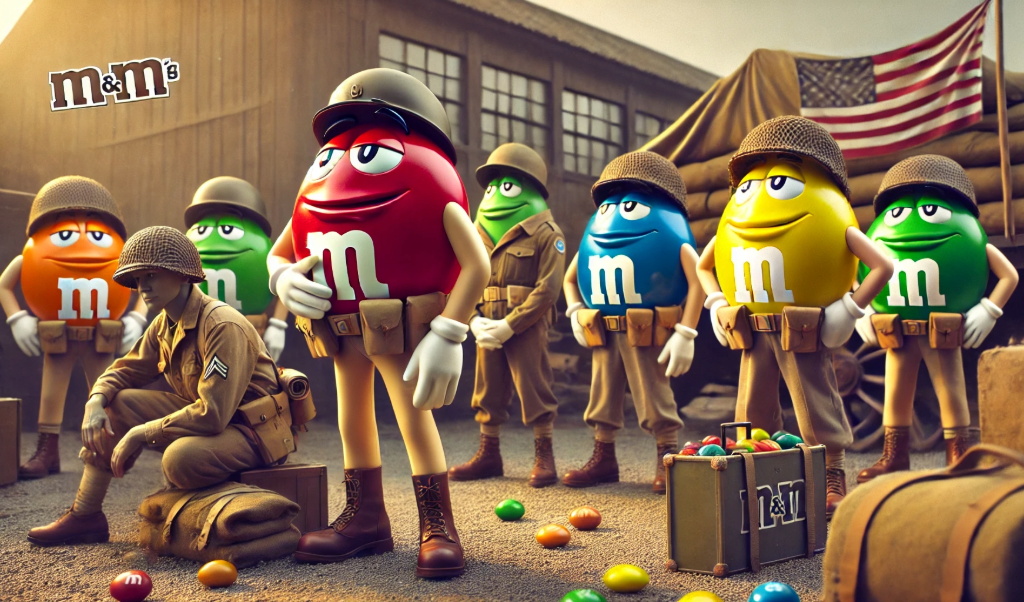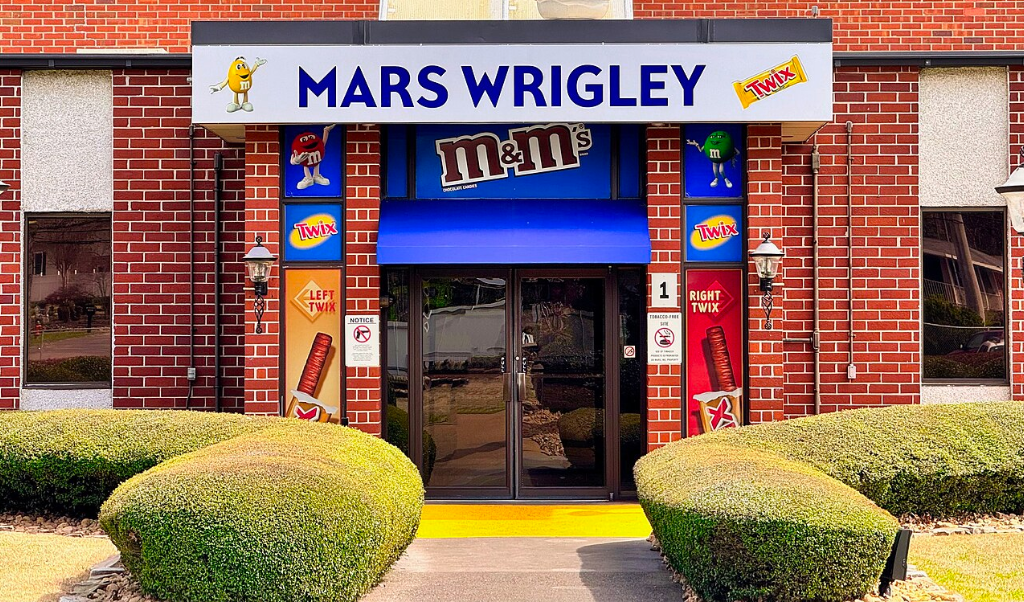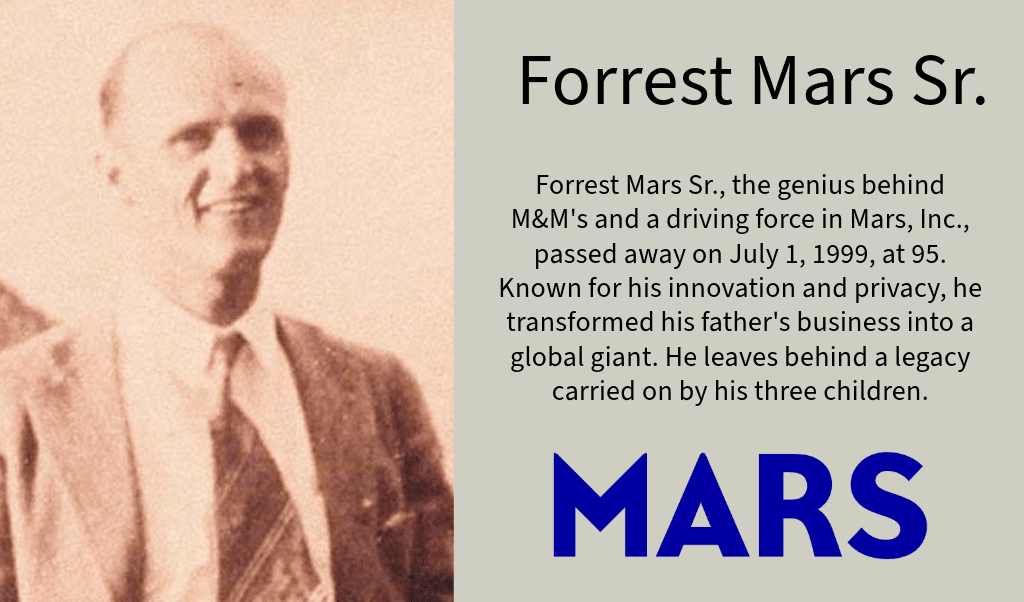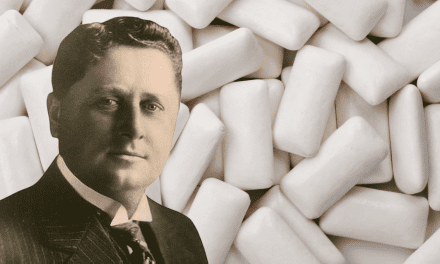Last updated 1 year ago ago | Originally Published: August 19, 2024
Forrest Mars Sr. was a pivotal figure in the development of the modern candy industry. Born into a family deeply entrenched in confectionery, he was the son of Frank C. Mars and Ethel V. Mars, co-founders of Mars, Inc. From a young age, Forrest was immersed in the world of candy production, but his ambitions extended far beyond what his parents had built. His drive to innovate and expand led him to significantly impact the candy business, establishing him as a leader in the industry.
Early Life and Influences
Forrest Mars Sr. was born on March 21, 1904, in Wadena, Minnesota, into a family deeply rooted in the confectionery business. His father, Frank C. Mars, who had already established a successful candy company, provided Forrest with early exposure to the industry.
This upbringing instilled in him a strong work ethic and a deep understanding of the importance of quality and innovation. From a young age, Forrest was encouraged by his father to explore new ideas and think creatively, setting the stage for his future success.
His mother, Ethel V. Mars, also significantly shaped his values and character. She emphasized integrity and responsibility, which Forrest carried into his professional life. Her influence reinforced his commitment to maintaining high standards in both personal and business matters. The positive family environment nurtured Forrest’s confidence and ambition, enabling him to take bold steps in his career.
After completing his education, Forrest joined the family business but sought to distinguish himself by expanding the company beyond the U.S. market. His father’s support for these ambitions allowed Forrest to explore new opportunities, leading him to believe in the importance of international expansion. This belief and his drive for innovation set the stage for his transformative impact on Mars, Inc.
Forrest’s pivotal decision to move to the United Kingdom and launch the Mars Bar in Slough, England, was a strategic business decision and a reflection of the values instilled in him by his family. It marked the beginning of his journey to turn Mars, Inc. into a global leader, building on the strong foundation his family had established.

Key Contributions to the Candy Industry
Forrest Mars Sr. made several groundbreaking contributions that revolutionized the candy industry. His work laid the foundation for some of the most iconic products that are still popular today.
Mars Bar: One of Forrest Mars Sr.’s earliest and most significant contributions was the introduction of the Mars Bar in 1932. Developed in England, the Mars Bar became an instant success and set the stage for the international expansion of Mars, Inc. This product demonstrated his ability to adapt and innovate, catering to the tastes of a new market.
M&M’s: Perhaps the most famous product associated with Forrest Mars Sr. is M&M’s. Created during World War II, M&M’s were inspired by soldiers who ate chocolate pellets coated in a hard shell to prevent melting. Forrest saw the potential for a new type of candy that could withstand various conditions and co-created M&M’s with Bruce Murrie, the son of a Hershey executive. This collaboration resulted in one of the most successful candy products in history.
Vertical Integration: Forrest Mars Sr. was focused on creating new products and improving production efficiency. He introduced the concept of vertical integration to Mars, Inc., ensuring that the company controlled every aspect of the supply chain, from raw materials to final distribution. This strategy allowed the company to maintain high standards of quality and cost-effectiveness, giving it a competitive edge in the market.

Business Philosophy and Leadership Style
Forrest Mars Sr.’s business philosophy was rooted in quality, efficiency, and innovation principles. He believed that to succeed, a company must control its entire production process, ensuring consistency and reliability in its products. This approach was reflected in his leadership style, which was characterized by a hands-on, detail-oriented approach to management.
Total Control: Forrest strongly advocated maintaining control over every aspect of the business. He believed that outsourcing or relying on external suppliers could compromise the quality of the products. By integrating the supply chain, Forrest ensured that Mars, Inc. could produce high-quality candy at competitive prices, which was crucial for the company’s success.
Customer-Centric Approach: Forrest Mars Sr. understood the importance of the consumer in driving business success. He was committed to delivering products that met the highest quality standards at reasonable prices. This focus on the customer was evident in developing products like the Mars Bar and M&M’s, which were designed to appeal to a broad audience while maintaining affordability.
Global Vision: Unlike many of his contemporaries, Forrest Mars Sr. had a global perspective on business. He recognized that there was significant potential for growth outside the United States and pursued opportunities in international markets. His decision to move to the UK and launch the Mars Bar was a testament to his belief in the importance of global expansion. This vision laid the groundwork for Mars, Inc., to become one of the largest confectionery companies in the world.
Innovation in Business Processes and Culture
Forrest Mars Sr. was a visionary who transformed how Mars, Inc. operated. He believed innovation had to reach beyond products to every aspect of the business. One of his key contributions was vertical integration, ensuring Mars controlled its entire production process. This approach helped maintain quality, reduce costs, and keep the company competitive in a changing market.
Mars also created a culture of continuous improvement within the company. He encouraged employees to think critically and find ways to enhance efficiency. This focus on innovation became central to Mars, Inc., leading to advancements in products and operations. By promoting this mindset, Mars kept the company agile and forward-thinking.
Forrest Mars Sr. also recognized the importance of an empowered workforce. He believed employees should feel valued and invested in their development and well-being. This emphasis on empowerment fostered a strong sense of ownership among employees, creating a dedicated workforce that played a vital role in the company’s success.
Collaboration was another pillar of Mars’s approach. He understood that the best ideas often came from teamwork and that trust was essential for fostering creativity. By promoting collaboration, Mars improved business processes and strengthened the company culture, solidifying Mars Inc.’s position as a leader in innovation and employee satisfaction.

Key Collaborations and Influences
Forrest Mars Sr.’s journey was marked by several important collaborations and relationships that influenced his approach to business.
- Frank C. Mars: The relationship between Forrest and his father, Frank C. Mars, was complex. While Frank laid the foundation for Mars, Inc., Forrest sought to expand and innovate beyond his father’s original vision. This drive to distinguish himself led to significant company product and process advancements.
- Bruce Murrie: Bruce Murrie, the son of a Hershey executive, was a key figure in creating M&Ms. The partnership between Mars and Murrie was instrumental in developing M&Ms, one of the most successful candy products in history. This collaboration highlights Forrest Mars Sr.’s ability to recognize and capitalize on strategic partnerships.
- Hershey Chocolate Company: Although a competitor, Hershey played a major role in the early success of M&M’s by supplying the chocolate for the product. The relationship between Mars, Inc., and Hershey is a notable example of how collaboration between industry giants can lead to mutual success.
Leadership During Challenging Times
Forrest Mars Sr. demonstrated remarkable leadership during several challenging periods, including the Great Depression and World War II. In the face of the economic turmoil of the Great Depression, while many companies faltered, Mars focused on maintaining the quality and affordability of his products. This commitment to delivering consistent value helped the company retain consumer trust, allowing Mars, Inc., to survive and continue to grow during these difficult years.
World War II posed another significant challenge, particularly with the scarcity of raw materials and the need to meet the unique demands of the wartime economy. Forrest Mars Sr. responded by developing M&M’s, a product designed specifically to withstand various conditions, making it ideal for soldiers in the field. This innovation met the immediate needs of the time and laid the groundwork for one of the most successful, enduring candy products in history.
In addition to product innovation, Forrest Mars Sr. emphasized the importance of vertical integration during these crises. By controlling the entire supply chain, Mars, Inc. reduced its dependence on external suppliers, thereby mitigating the risks associated with global disruptions. This strategic focus on internal control and efficiency ensured the company’s resilience and positioned it for long-term success even after the crises had passed.
Forrest Mars Sr.’s leadership extended beyond business strategies, including a strong focus on maintaining employee morale and commitment during these tough times. He recognized that a motivated and dedicated workforce was essential for navigating through crises. His investment in the well-being and development of his employees, even during periods of uncertainty, was crucial in ensuring that Mars, Inc. emerged from these challenges stronger than before.
Employee Empowerment and Development
Forrest Mars Sr. understood that Mars, Inc.’s strength rested on its products and the people behind them. He believed that empowering employees and investing in their development was crucial for the company’s long-term success. Mars fostered a culture of loyalty and dedication by creating a work environment where employees feel valued and motivated. This approach ensured that employees were not just workers but active contributors to the company’s growth.
Mars strongly emphasized employee development, recognizing that a well-trained and knowledgeable workforce was essential for maintaining high standards and driving innovation. He implemented programs and initiatives that encouraged continuous learning and skill development. By investing in his employees’ growth, he ensured that they were equipped to meet the evolving demands of the business and contribute to its success.
Empowering employees also extends to giving them ownership of their work. Forrest Mars Sr. believed in entrusting employees with responsibilities that allowed them to take the initiative and make meaningful contributions. This sense of ownership fostered a strong connection between the employees and the company, leading to higher job satisfaction and productivity. It also created a highly engaged workforce committed to the company’s goals.
Forrest Mars Sr.’s focus on employee empowerment and development was key to Mars, Inc.’s enduring success. By building a strong, capable, and motivated team, he laid the foundation for a company culture that values innovation, quality, and continuous improvement. This approach contributed to the company’s growth during his tenure and left a lasting legacy that continues to shape Mars, Inc. today.
The Final Days and Goodbye from Forrest Mars Sr.
Forrest Mars Sr. spent his final years largely out of the public eye, living a quiet life in Miami, Florida. Although his health began to decline after a stroke in 1994, he remained mentally sharp. Mars’s reclusive nature persisted until his death on July 1, 1999, at the age of 95.
Mars’s death marked the end of an era for the Mars family, but the business he had built was already in the capable hands of his children. He had retired from Mars, Inc. in 1973, leaving his sons, Forrest Jr. and John, to lead the company, which had grown into a global powerhouse by then.
The Mars family has maintained its commitment to privacy and control, keeping the business within the family. Today, Mars, Inc. remains one of the largest privately held companies in the world, with a diverse portfolio that includes candy, pet food, and more. The family’s net worth continues to grow, with the Mars heirs ranking among the richest in America.
Forrest Mars Sr.’s legacy lives on through the iconic brands he helped create, including M&M’s, which continue to be beloved by millions around the world. His influence on the confectionery industry is undeniable, and his business acumen continues to inspire generations.

Lessons from Forrest Mars Sr.’s Legacy
Forrest Mars Sr.’s legacy offers enduring lessons for today’s business leaders. His approach, characterized by innovation, efficiency, and an unwavering focus on quality, remains highly relevant in the modern business world. Mars understood that true success required more than just a good product—it required a comprehensive strategy that touched every aspect of the business.
One of the most significant aspects of his legacy is the emphasis on vertical integration. By controlling the entire supply chain, Mars, Inc. maintained high standards and reduced costs, giving the company a significant competitive advantage. This approach is applicable across industries today, offering businesses a way to ensure quality and improve efficiency while staying ahead of competitors.
Forrest Mars Sr.’s global perspective was another key element of his success. He recognized the importance of expanding beyond domestic markets, which allowed Mars, Inc., to grow into a global powerhouse. Modern businesses can learn from his example by exploring international opportunities and adapting their products to meet the needs of diverse markets, ensuring sustainable growth and success on a global scale.
Mars’s philosophy was centered on a strong focus on the customer. He was committed to delivering high-quality products that met and exceeded customer expectations. This customer-centric approach is as vital today as it was then, reminding businesses that understanding and satisfying customer needs is essential for long-term success.
Long-Term Vision and Succession Planning
Forrest Mars Sr. was focused on immediate success and ensuring the long-term sustainability of Mars, Inc. He recognized that a company’s future depended on careful planning and strategic vision. This foresight led him to implement practices that would secure the company’s growth for generations to come. His approach to succession planning was meticulous, aiming to instill the values and principles he believed were essential for the company’s continued success.
Mars understood that a strong leadership transition was crucial for maintaining the company’s momentum. He ensured that the next generation of leaders was well-prepared to take on the responsibilities of guiding the business. By mentoring and instilling a deep understanding of the company’s values, Forrest Mars Sr. helped create a seamless transition that preserved the company’s culture and commitment to quality.
This long-term vision is evident in how Mars, Inc. has evolved over the years, maintaining its position as a global leader in the confectionery industry. The company’s ability to adapt to changing markets and consumer preferences while staying true to its core values is a testament to Forrest Mars Sr.’s strategic foresight. His emphasis on strong leadership and succession planning continues to influence today’s company’s direction.
The relevance of Forrest Mars Sr.’s approach to long-term vision and succession planning extends beyond Mars, Inc. It serves as a model for businesses aiming for sustained success, highlighting the importance of preparing future leaders and maintaining a consistent vision that aligns with the company’s foundational values.
Learn More About Forrest Mars Sr.
For further exploration of Forrest Mars Sr.’s legacy and the enduring influence of his pioneering strategies, the following references provide detailed insights into his life, the evolution of the Mars company, and his leadership principles.
- Mars-Wrigley Official Website: https://www.mars.com/
- Wikipedia: https://en.wikipedia.org/wiki/Forrest_Mars_Sr.
- Candy Retailer: https://www.candyretailer.com/blog/mars-inc






Recent Comments